Are you an early career researcher looking for funding opportunities to kickstart your innovative projects? Navigating the grant process can be daunting, but with the right approach and strategies, you can increase your chances of success. In this article, we'll share essential tips and a comprehensive letter template designed specifically for early career researchers like you. So, get ready to boost your grant application game and discover how to make your research vision a reality!
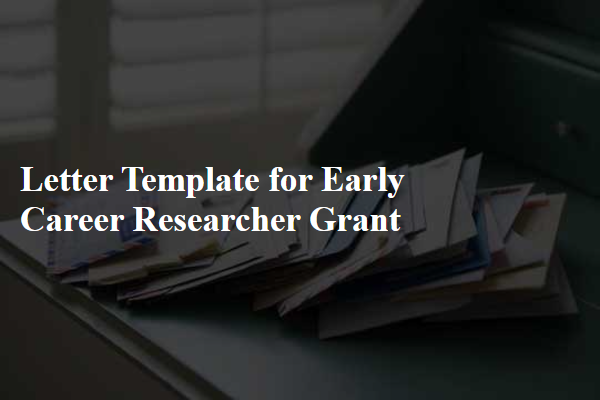
Clear project objectives and goals.
The early career researcher grant proposal outlines a study focused on assessing the impact of urban green spaces on mental health among residents in metropolitan areas. The primary objective involves evaluating the relationship between accessibility to parks, biodiversity (measured by species count), and reported mental health outcomes across a sample of 500 participants within New York City. Secondary goals include identifying specific features of green spaces, such as walking trails and recreational facilities, that correlate with improved psychological well-being. Collecting data through surveys and using GIS mapping techniques will enhance understanding of spatial distribution and accessibility. The ultimate aim is to provide evidence-based recommendations to policymakers in urban planning departments, promoting the integration of green spaces into urban infrastructure to enhance community health and well-being.
Detailed research methodology.
The proposed research methodology for the study, titled "Impact of Urban Green Spaces on Psychological Well-being," involves a multi-phased approach. Phase one includes a comprehensive literature review spanning psychological studies published between 2010 and 2023, identifying key variables such as stress reduction and mood enhancement associated with urban green spaces like parks in cities like New York and London. Phase two utilizes a mixed-methods approach, incorporating quantitative surveys with at least 500 urban residents aged 18-65, analyzing data through statistical software (e.g., SPSS). Phase three consists of qualitative interviews with 30 selected participants to gather in-depth insights. Data triangulation will enhance validity, allowing for a nuanced understanding of perceived benefits of urban greenery. The final phase includes disseminating findings at relevant conferences and peer-reviewed journals, targeting audiences engaged in environmental psychology and urban planning, ensuring broad outreach.
Relevance and impact of research.
Early career researchers play a crucial role in advancing scientific knowledge across various fields, including biotechnology, renewable energy, and social sciences. Their innovative research proposals often address pressing global challenges, such as climate change, public health crises, and food security. For instance, projects focusing on gene editing technologies, like CRISPR, aim to enhance crop resilience against climate-induced stress (e.g., droughts), potentially revolutionizing agricultural practices. The anticipated impact extends beyond academia, influencing policy-making and industry standards, thus fostering economic growth. Collaborations with institutions, such as the National Institutes of Health (NIH) or the World Health Organization (WHO), further amplify the relevance of their work, ensuring applicability in real-world scenarios. Early career researchers, equipped with fresh perspectives and cutting-edge methodologies, offer invaluable contributions toward sustainable solutions that resonate with societal needs.
Budget justification and allocation.
The budget justification for the early career researcher grant outlines the necessary allocations for successful project execution. Personnel costs represent 60% of the total budget, encompassing salaries for a postdoctoral research associate and a graduate student, critical for conducting experiments and data analysis at esteemed institutions like Harvard University and the University of California, Berkeley. Supplies totaling $15,000 will include essential lab materials such as reagents and specialized equipment designed for advanced genetic research. Travel expenses of $5,000 are earmarked for attending key conferences such as the American Association for the Advancement of Science meeting, providing opportunities for networking and collaboration with global experts. Additionally, $2,000 is allocated for publication fees in high-impact journals, ensuring dissemination of research findings to a wider audience. Finally, $3,000 is set aside for professional development workshops, enhancing skills in research methodologies and grant writing, critical for long-term career advancement.
Researcher's qualifications and previous work.
An early career researcher's qualifications often highlight academic achievements, such as a PhD in Molecular Biology from Harvard University completed in 2021. Previous work includes a significant research project focused on CRISPR-Cas9 gene editing that led to three published papers in high-impact journals like Nature Biotechnology and an invitation to present findings at the 2022 American Society of Cell Biology meeting in Philadelphia. Collaborations with established scientists yielded innovative techniques to enhance gene targeting efficiency, while mentorship under Dr. Jane Smith, a renowned expert in genetic engineering, provided invaluable experience in cutting-edge methodologies. Additionally, participation in workshops, including the 2023 National Institutes of Health grant writing seminar, strengthened grant proposal skills essential for securing funding in competitive research landscapes.
Letter Template For Early Career Researcher Grant Samples
Letter template of funding request for early career researcher grant application.
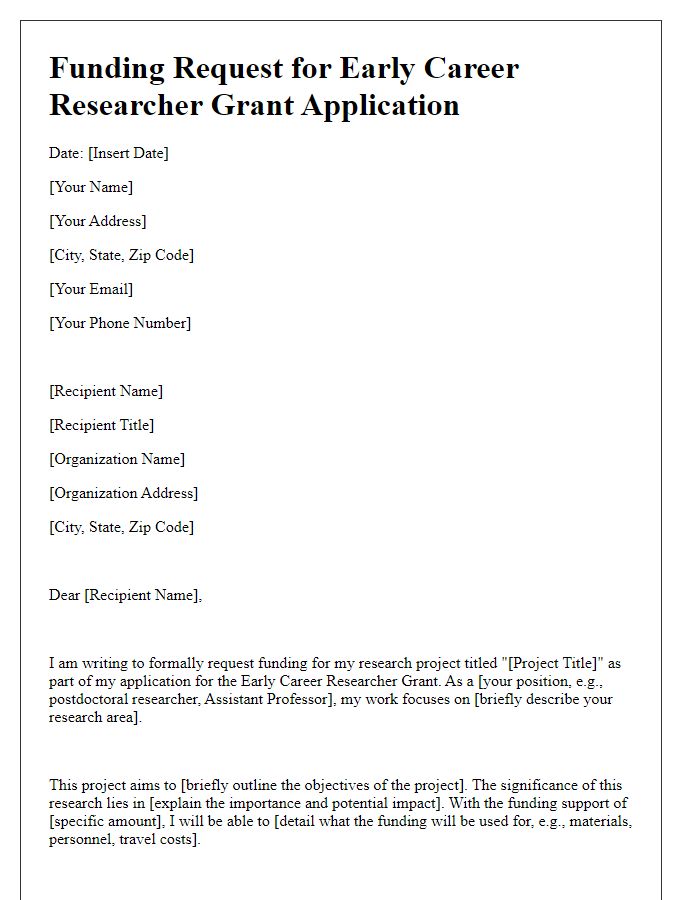
Letter template of proposal submission for early stage researcher funding.
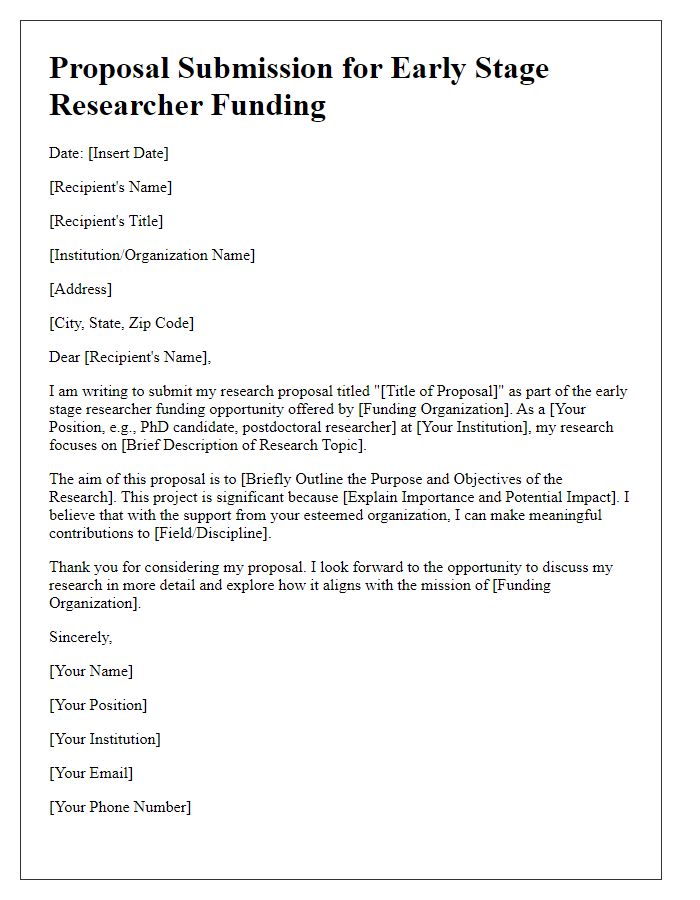
Letter template of introduction for early career researcher grant application.
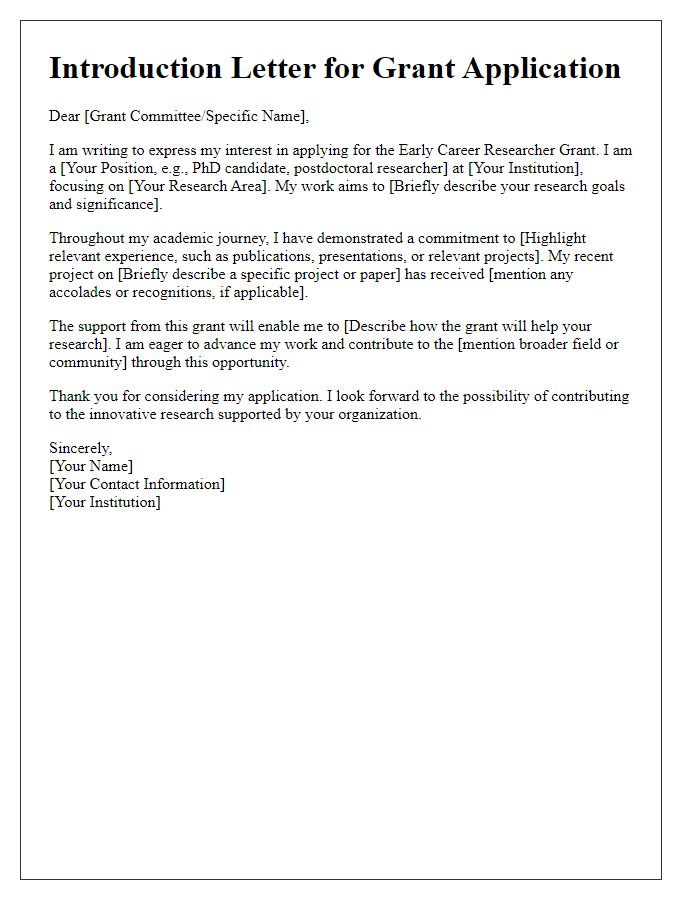
Letter template of appeal for early career research grant consideration.
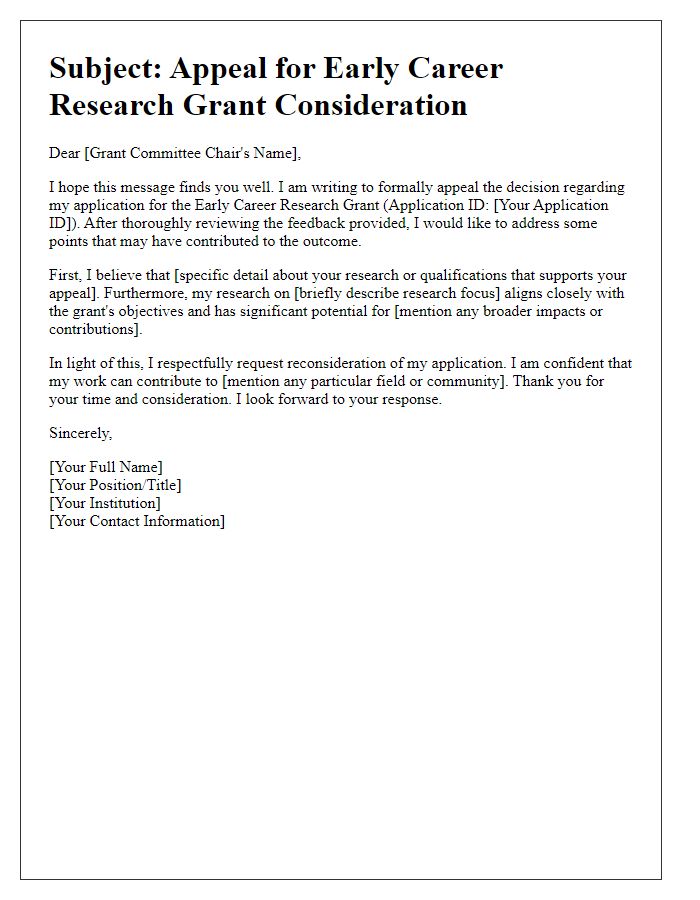
Letter template of project proposal for emerging researcher grant funding.
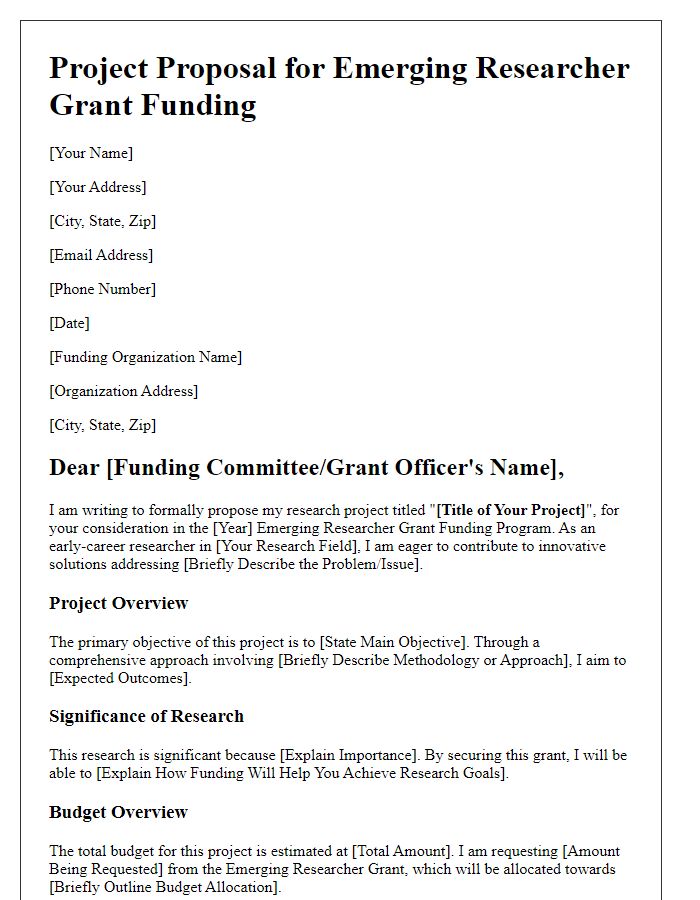
Letter template of sponsorship request for early career scientist grant.
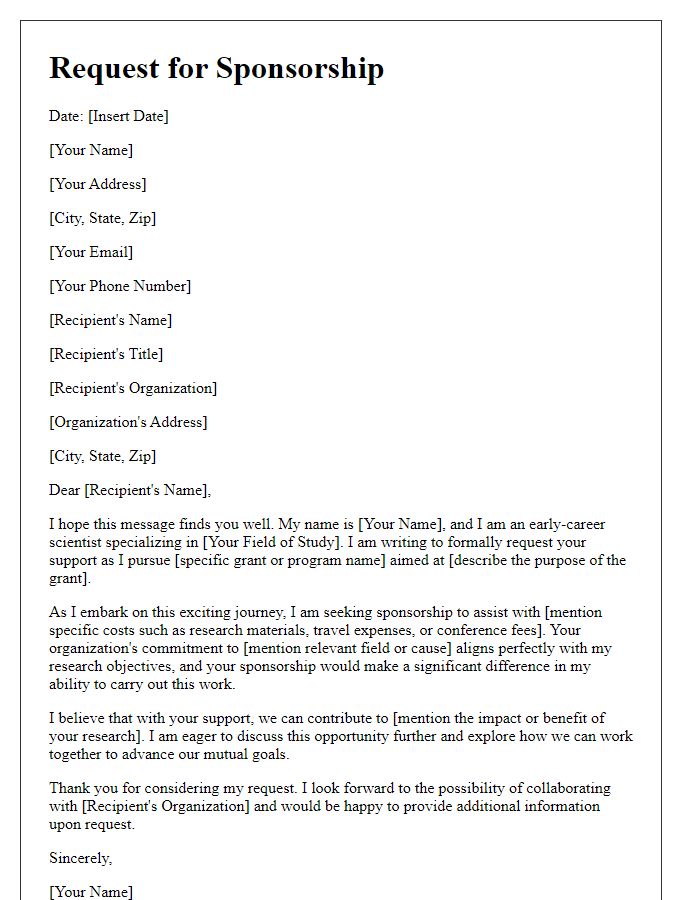

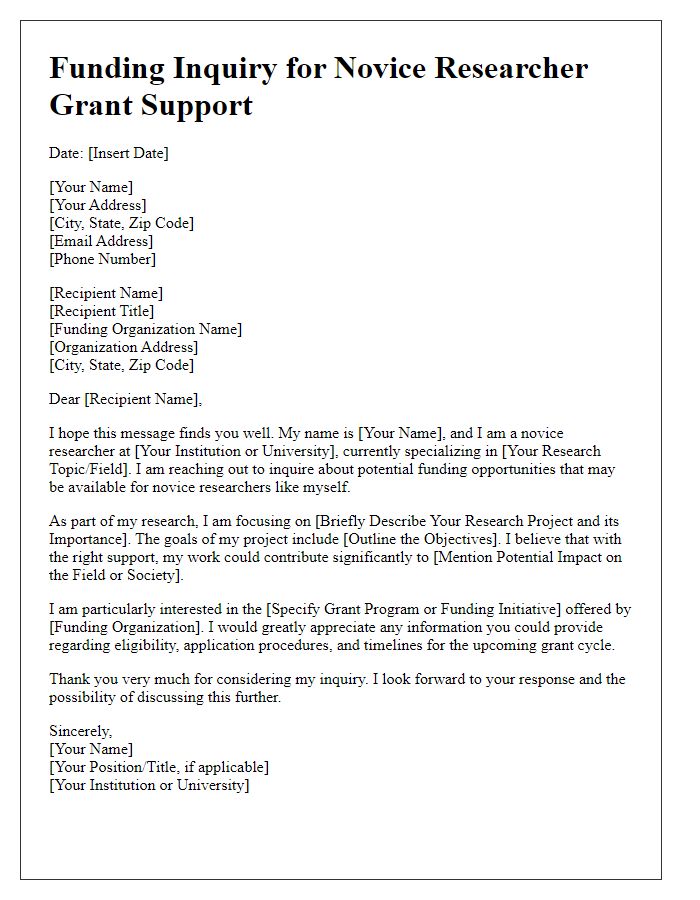
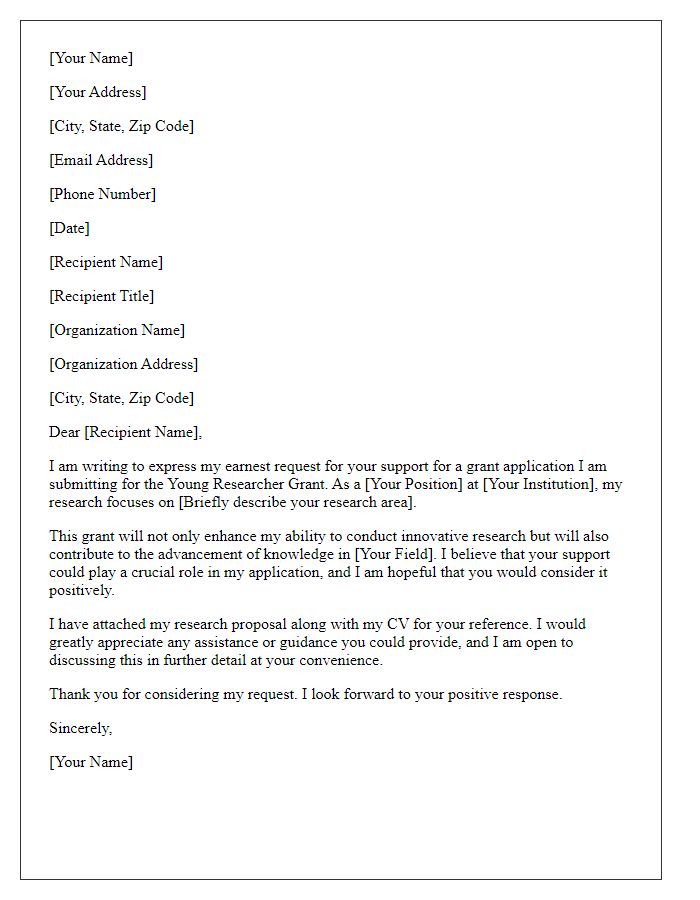
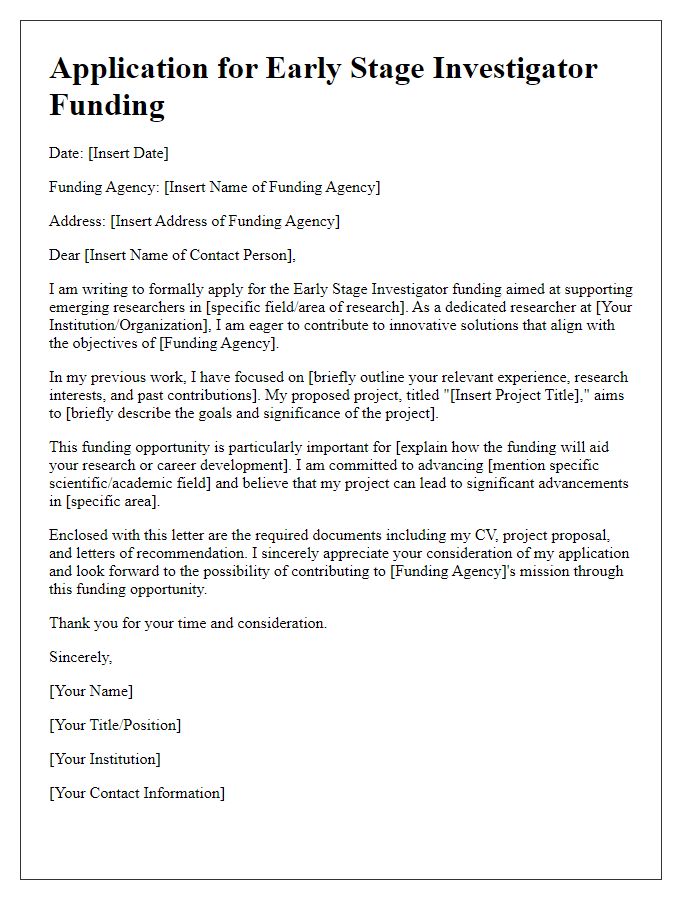
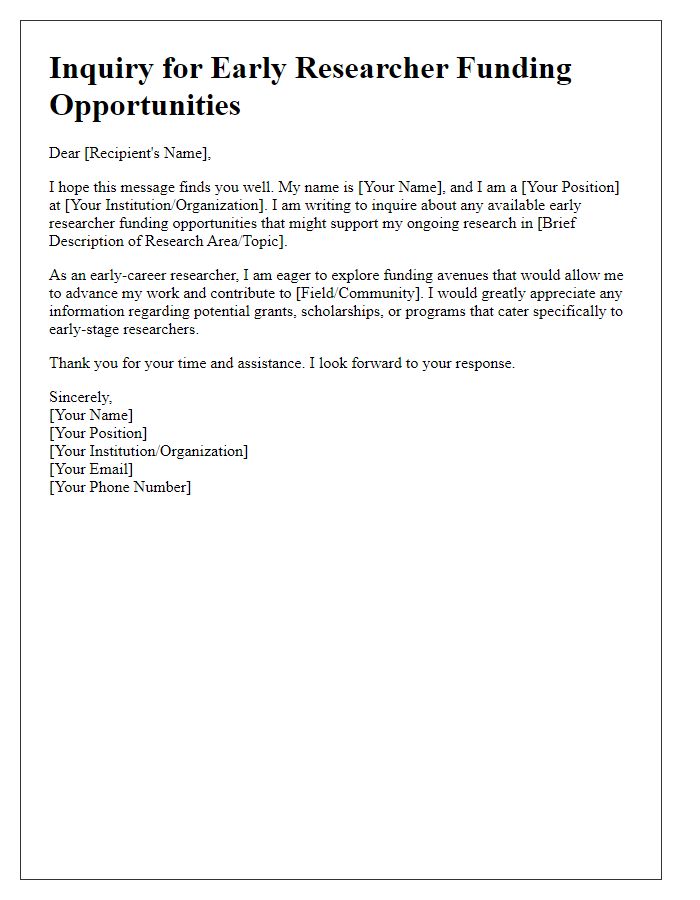


Comments